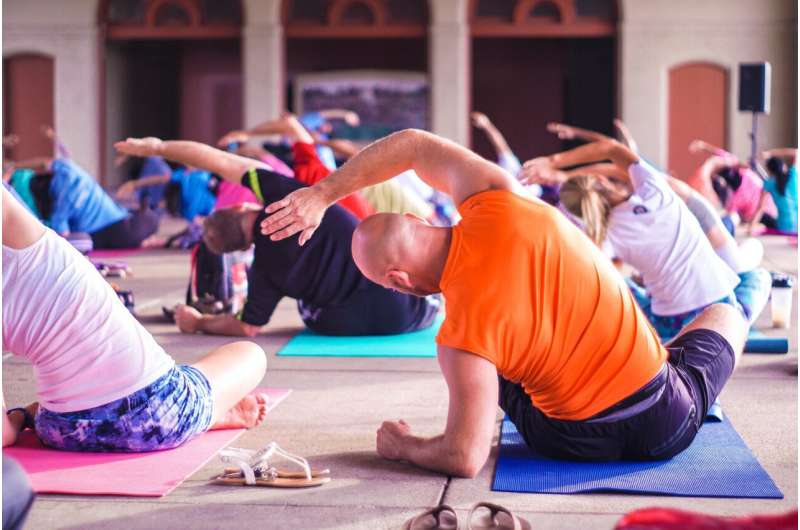Yoga may help to prevent frailty in older adults


A systematic review of 33 randomized controlled trials (RCTs) found that yoga improved gait speed and lower extremity strength in inactive older people. However, yoga did not seem to offer a benefit for frailty markers over activities like exercise or tai chi. The review is published in Annals of Internal Medicine.
Older adults have an increased burden of chronic disease, disability, and frailty. Frailty affects up to 50 percent of adults aged 80 years and older, and its prevention and management are high priorityareas in public health and clinical practice. Yoga may be a prevention and management strategy and is already used to improve balance and mobility in older adults.
Researchers from Brigham and Women’s Hospital and Harvard Medical School reviewed 33 RCTs comprised of 2,384 participants aged 65 years or older to evaluate the available trial evidence on the effect of yoga-based interventions on frailty in older adults. The authors analyzed impacts on frailty markers including measures of gait speed, handgrip strength, balance, lower extremity strength and endurance, and multicomponent physical performance measures.
The authors found that when compared to education-only or inactive control groups, there was moderate evidence that yoga improved gait speed and lower body strength and endurance. the benefits for balance and handgrip strength were less certain. While there was no clear advantage for a particular style of yoga, the authors suggest clinicians may consider recommending Iyengar-based styles, with a home practice, that can be customized for older adult populations. These findings add to growing literature that yoga plays a role in healthy aging and frailty prevention.
More information:
Effect of Yoga on Frailty in Older Adults, Annals of Internal Medicine (2023). DOI: 10.7326/M22-2553
Journal information:
Annals of Internal Medicine
Source: Read Full Article